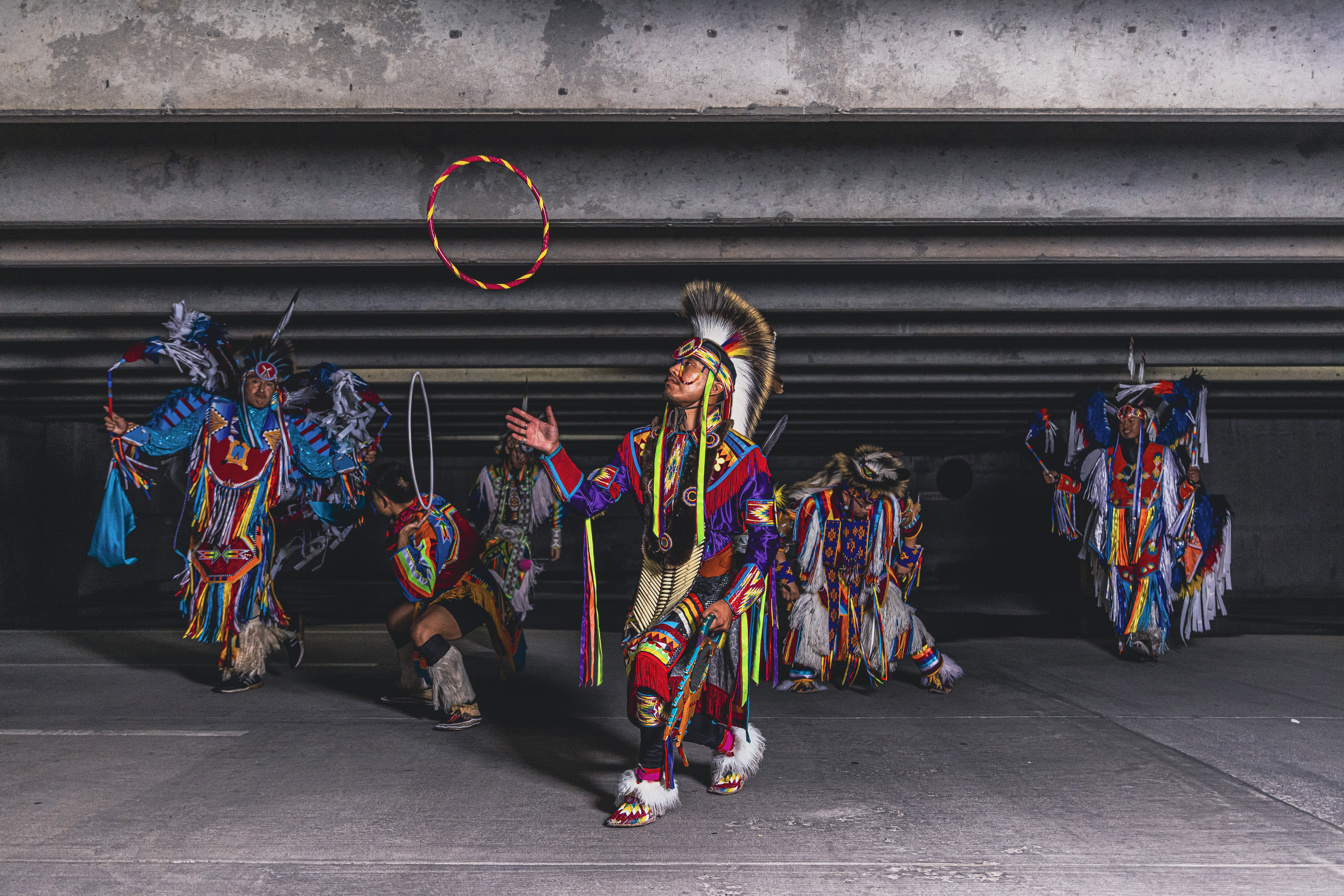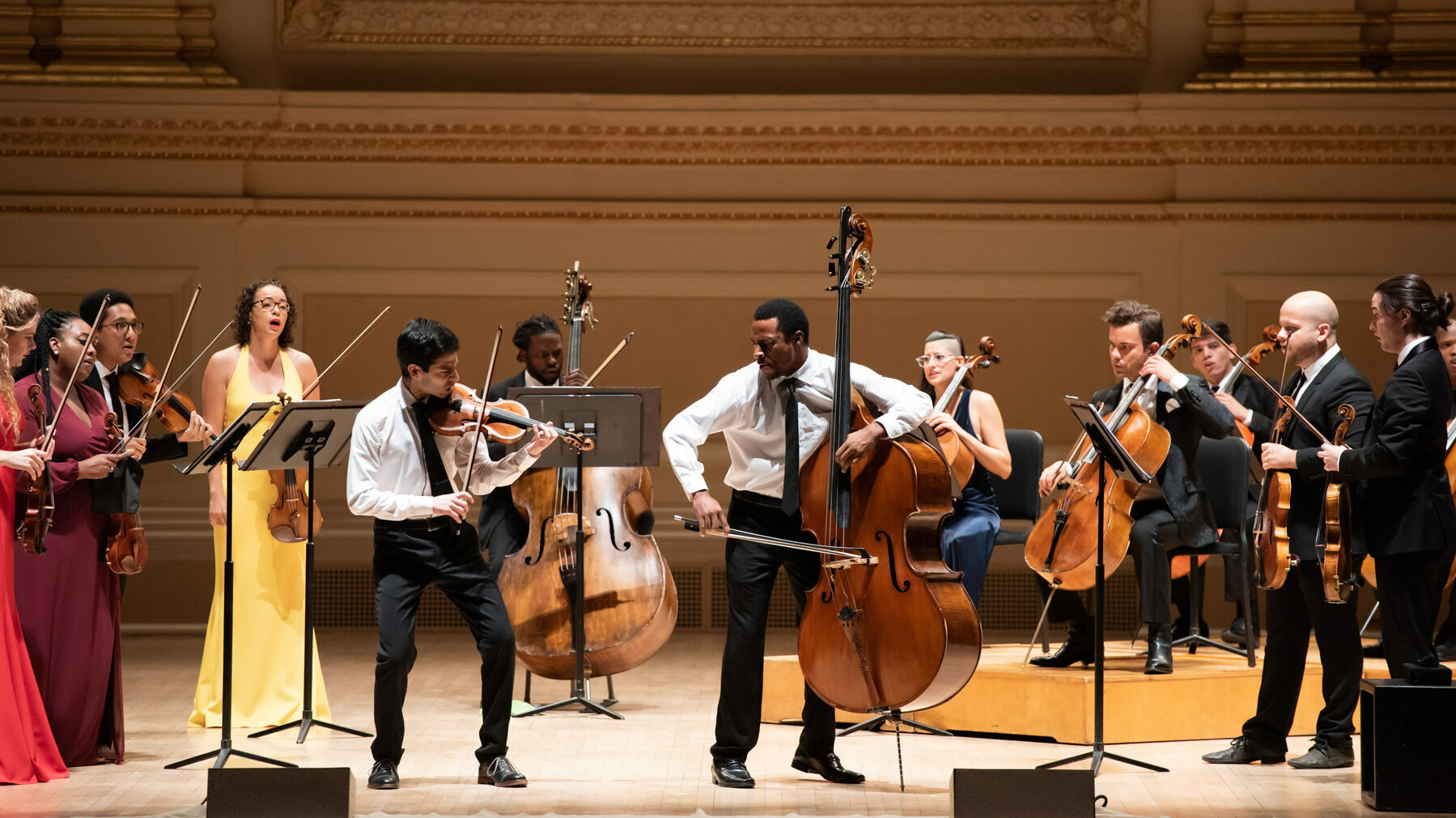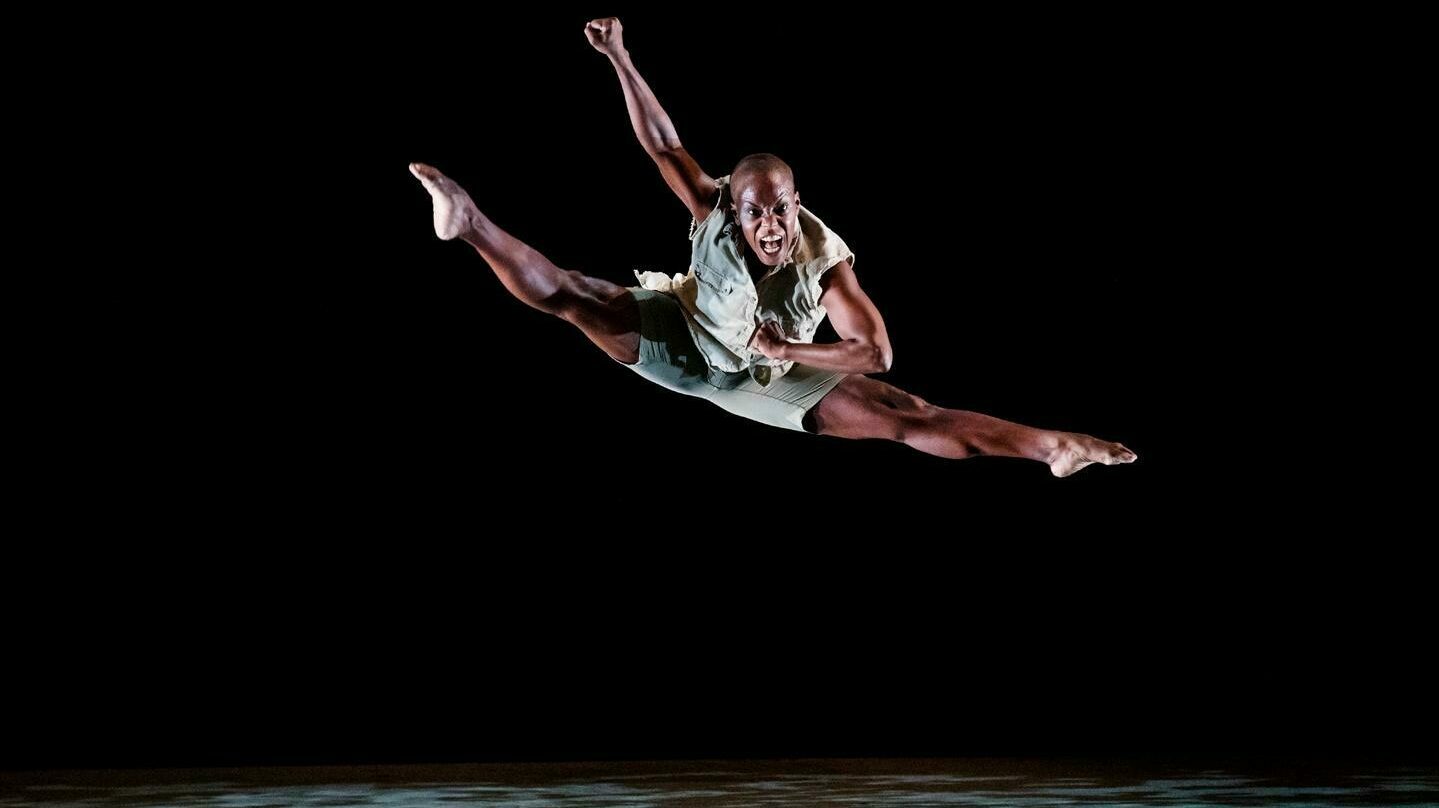Somi Kakoma is a multi-hyphenate artist: vocalist, songwriter, playwright and performer. Born in Illinois to parents who emigrated from Rwanda and Uganda, the Grammy-nominee draws from her African roots to craft a jazz idiom all her own. Her latest album, released in March 2022, is “Zenzile: The Reimagination of Miriam Makeba,” a deeply personal tribute to the groundbreaking South African singer and activist. Kakoma has also written and stars in a new musical about Makeba called “Dreaming Zenzile.”
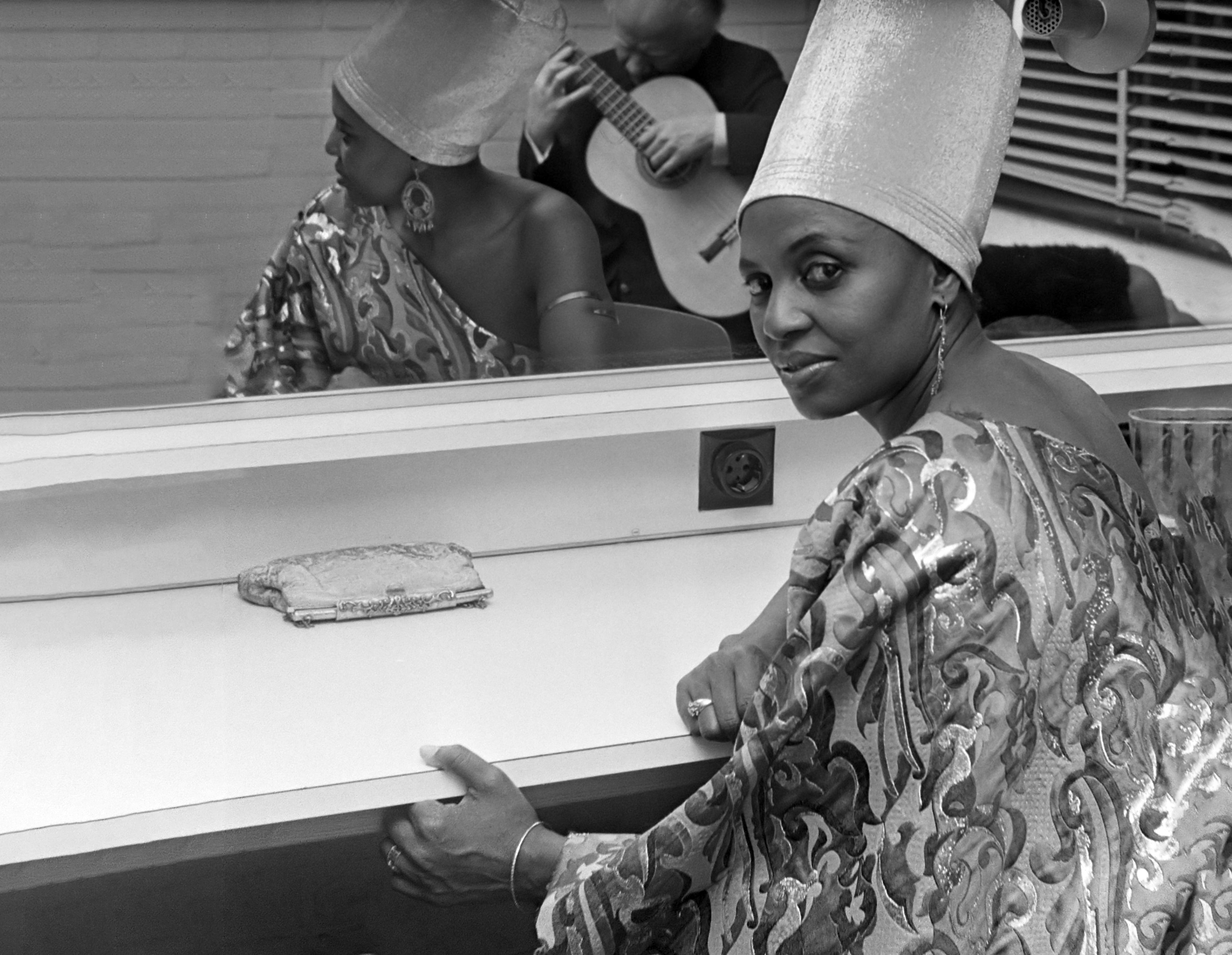
Zenzile Miriam Makeba gained international attention in 1959 when she appeared in the anti-apartheid film “Come Back, Africa.” Makeba’s popularity grew in the United States in the 1960s. At the same time, she met American singer Harry Belafonte, who became a mentor to her and with whom she won a Grammy Award in 1965. Prevented from returning to South Africa by the apartheid regime there, Makeba made her home in New York for several years. In 1968, she married Stokely Carmichael, a leader of the Black Panther Party, and her U.S. visa was revoked. Performing in Europe and Africa, Makeba turned 31 years of exile from her native country into a global career, continuing to call out the South African government. After apartheid was dismantled in 1990, she returned to South Africa and continued recording and performing, including a 1991 album with Nina Simone and Dizzy Gillespie. She died of a heart attack during a 2008 concert in Italy. Known as “Mama Africa,” Makeba is today recognized the world over for her life and music.
Makeba has not been as well remembered in the United States, according to Kakoma. She sees her album and musical as an effort to give Makeba the attention she deserves. “Mama Africa” was a part of the soundtrack of Kakoma’s life from a very early age, through her parents and a generation of Africans in the diaspora who loved her. But Somi dates her true engagement with Makeba’s history and music to November 2008, when she heard about her death just after the concert in Italy, just as she herself was about to walk on stage. She immediately began planning a tribute concert at New York’s (Le) Poisson Rouge, an event that would be attended by Harry Belafonte, Paul Simon and musicians who had toured with Makeba over the years.
The album “Zenzile: The Reimagination of Miriam Makeba” includes Makeba originals and covers she made her own. They are performed by Kakoma and a range of musicians who are part of the African music scene today and in some way part of Makeba’s legacy: Seun Kuti (son of Nigera’s Afrobeat pioneer Fela Kuti), Angelique Kidjo, Gregory Porter and the group Ladysmith Black Mambazo. “I think all of us, anyone who's operating both on the continent and throughout the diaspora, as representatives of what Africa is and what it might be, is indebted to her in some way, no matter the genre, no matter the discipline,” says Kakoma.
The musical is another attempt to remember the life as well as the music. According to Kakoma, “The play demands that I try to embody her, her voice, her body, her language, her gesture, you know, her gestures, her sensuality, her ferocity.” Set on the night of Makeba’s death, Kakoma invites audience members into the world of Makeba, embodying both the joyful and painful parts of her story.
Support your local PBS station in our mission to inspire, enrich, and educate.
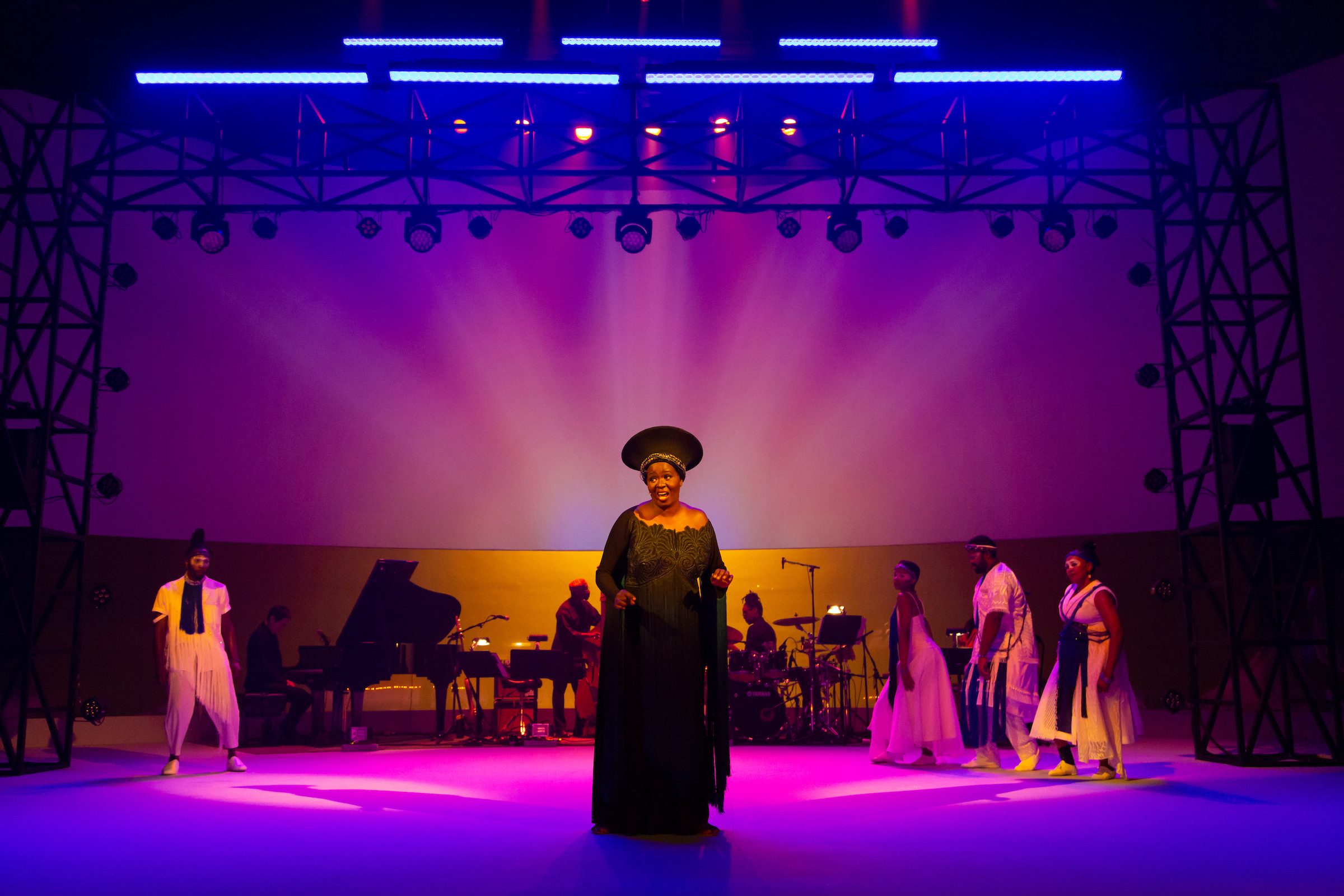
Five days before opening night at the Repertory Theatre of St. Louis, the pandemic hit, postponing the premiere of the show. In September of 2021, they were finally able to open at the Rep Theatre in St. Louis. “Dreaming Zenzile” has toured the McCarter Theatre in Princeton, New Jersey and Arts Emerson in Boston, and will run at New York Theatre Workshop from May 17 through June 26, 2022.
“What I hope people take away from this piece is an invitation to learn more about Miriam Makeba,” says Kakoma. “It's really to remember her, to honor her, to speak her name, to know her songs, and to know that the voice lives.”

The best of PBS, straight to your inbox.
Be the first to know about what to watch, exclusive previews, and updates from PBS.

